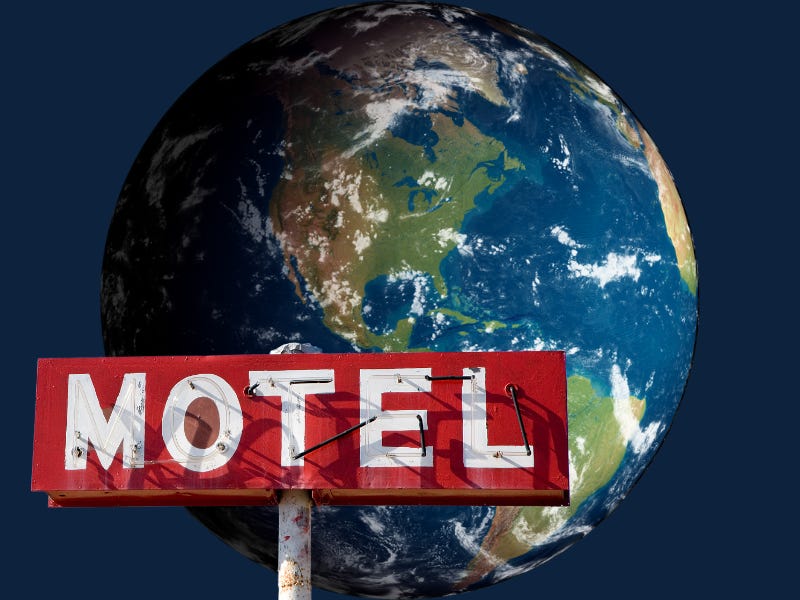We’ve been living on Planet Earth like we’re making a one-night stop in a cheap motel. We throw towels all over the place, pile up the pizza boxes and soda bottles, and don’t worry about the hairs in the bathtub or hairspray on the mirror.
But our planet isn’t a temporary stop and there’s no maid to clean up in the morning. It’s true that Nature can clean up almost anything, given enough time. But the natural cycles often take centuries or longer. We’ll grow old with the problems our parents started, let alone what we have unleashed (plastics, anyone?).
Wouldn’t it be nice to think that when we have children or grandchildren they won’t grow up wearing masks to school and that there’ll still be butterflies to get excited about?
To make that happen, we need to realize that the Earth is home, not a temporary stop on a trip to somewhere else. We need, in short, to clean up our act. This book will explain how to do that.
What we do—buy or eat or throw away—affects the planet. And things that happen to the environment affect our health and our neighborhoods. I want to lower the price of admission to green living, and give people lots of ways to get started.
You’ve opened this book because you know that something isn’t right about the way we’ve been doing things. That’s where I started, too, as a young mother who accidentally got a contract to write a book about “home ecology.”
I was twenty-nine and working in London for T. S. Eliot’s widow as an assistant editor. I started by asking environmental experts the question you’re asking now: What can I do, what should I do? And will it make a difference?
I discovered that experts hate this question. I think they wish they could answer it, but instead they come out with “write your legislator” or “vote for green candidates.” They talk about policy changes and government initiatives, tax incentives, and corporate governance.
That wasn’t good enough.
I wanted to know what I could do, what I should do, in my daily life. Not because I thought I could change the world on my own, or that political action wasn’t necessary. What I could see is that we need to adjust the way we live, to be healthier and more sustainable, and I wanted to be part of that solution instead of waiting for government to tell me what to do. I wanted to make a difference—even if it’s a small one.
The surprise success of Home Ecology changed my life.
I never became a professional environmentalist and I don’t want to be one. What you’ll read here comes from the life of an ordinary working mother and busy entrepreneur. I needed ideas that wouldn’t take a lot of time or cost a lot of money, and let me keep living my life without heading for the hills or joining a commune. I want maximum impact for the time I put in.
Most of the suggestions I read seem complicated, or expensive, or trivial. “Write small so you use less paper” is my all-time favorite, but there are plenty of others.
That’s what The Armchair Environmentalist [and now the Home Ecology newsletter] is about, the hundreds of little things we can do to help protect the beautiful planet we live on. If we all do a little, it adds up to a lot. By giving a few minutes a day to changing the way you interact with your personal bit of the global environment, you’re helping to reverse direction, and giving the planet a chance to regroup. You’re also helping design sustainable lifeways and working with millions of people around the world who care about the natural world and a healthy future for all of us, and for our children.




